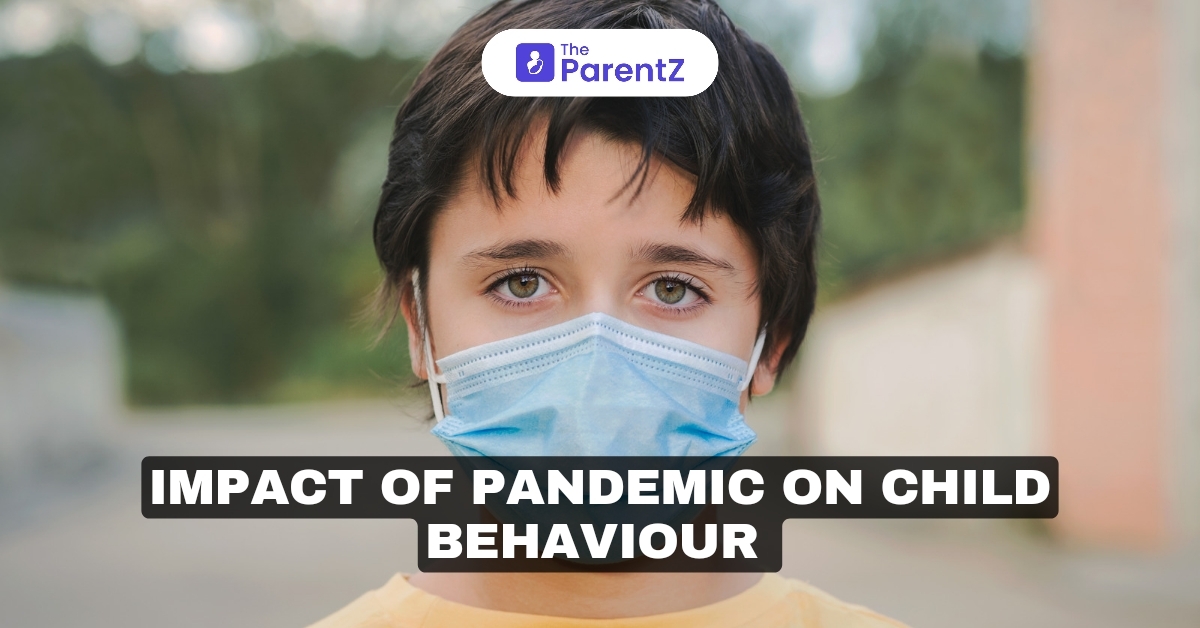The COVID-19 pandemic has significantly affected children's mental health and behavior. Research indicates that many children have experienced increased anxiety, irritability, and mood changes during this period. The isolation brought on by social distancing measures has disrupted routines, leading to challenges that many families are still navigating today.
Behavioral Changes Observed
Children have exhibited various stress-related behaviors as a result of the pandemic:
- Increased Anxiety: Many children have shown heightened levels of anxiety due to uncertainties surrounding health, education, and social interactions. The constant news cycle surrounding COVID-19 may have contributed to feelings of fear and uncertainty among young minds.
- Mood Swings: The disruption of routines has led to mood fluctuations, including irritability and withdrawal from previously enjoyed activities. Children may struggle with feelings of boredom or frustration due to limited social interaction.
- Sleep Disturbances: Many children have reported difficulties sleeping, which can exacerbate other mental health issues. Sleep disturbances may stem from anxiety about school performance or social situations they have missed out on during lockdowns.
Long-Term Implications
The long-term effects of these behavioral changes remain a concern. Prolonged exposure to stress can hinder emotional development and lead to persistent mental health issues if not addressed adequately.
- Need for Support: It is essential for parents to provide emotional support during this time. Open communication about feelings can help children process their experiences more effectively. Regular check-ins about how they feel can normalize discussions around mental health.
- Structured Routines: Re-establishing daily routines can provide stability for children, helping them feel more secure as they navigate post-pandemic life. Consistent schedules for meals, homework, playtime, and bedtime can create a sense of normalcy amidst ongoing changes.
- Professional Help When Needed: If behavioral changes persist or worsen, seeking professional help may be necessary. Mental health professionals can offer strategies tailored to individual needs, helping families navigate these challenging times more effectively.
Encouraging Resilience
Building resilience in children is crucial for overcoming challenges posed by the pandemic's impact on behavior.
- Teach Coping Strategies: Equip your child with coping mechanisms such as mindfulness exercises or deep breathing techniques that they can use when feeling overwhelmed.
- Foster Independence: Encourage age-appropriate independence by allowing your child to make choices regarding their activities or responsibilities at home. This empowerment can boost self-esteem and resilience.
- Celebrate Small Wins: Acknowledge achievements—no matter how small—during this time. Celebrating progress helps reinforce positive behaviors and encourages a growth mindset.
Parental Stress and Its Influence on Children’s Behavior
In addition to the direct effects of the pandemic on children, parental stress during this period has also played a significant role in shaping children’s behavior. The financial strain, job uncertainties, and health concerns faced by many families have inadvertently created a tense home environment. Children are highly perceptive and often absorb the emotional climate around them, which can exacerbate their own stress and anxiety levels. As parents navigate these challenges, children may exhibit mirrored behaviors such as irritability, defiance, or withdrawal, further complicating the family dynamic.
It is essential for parents to model healthy coping mechanisms in stressful situations. When children see their caregivers manage stress effectively—through open communication, mindfulness practices, or seeking support—they are more likely to adopt similar strategies. Providing a calm and supportive environment helps reduce the psychological toll on children, creating a foundation for resilience. Parents can also benefit from seeking support for themselves, recognizing that their well-being is closely tied to their children's mental health.
Social and Emotional Skills Development
Another area significantly impacted by the pandemic is the development of children's social and emotional skills. With limited face-to-face interaction due to lockdowns and school closures, many children have missed out on opportunities to learn important social cues and emotional regulation through peer interactions. Social play, a key aspect of emotional development, was disrupted, leading to delays in children’s ability to form friendships and practice empathy. Virtual learning environments, though necessary, could not fully replace the nuances of in-person communication, which may have led to feelings of isolation, increased frustration, and difficulties in managing emotions.
Conclusion
The COVID-19 pandemic has undoubtedly left a profound impact on children's mental health and behavior, with increased anxiety, mood fluctuations, and disruptions in social and emotional development being among the most notable effects. While many of these changes are challenging, there are strategies to help children cope and build resilience. By offering emotional support, re-establishing routines, and seeking professional help when necessary, parents and caregivers can mitigate the long-term effects of the pandemic on their children’s mental well-being. Encouraging resilience through coping strategies, independence, and positive reinforcement can empower children to navigate current challenges and foster emotional strength for the future. The road to recovery may be long, but with proper support, children can emerge from this crisis more adaptable and resilient.






Be the first one to comment on this story.